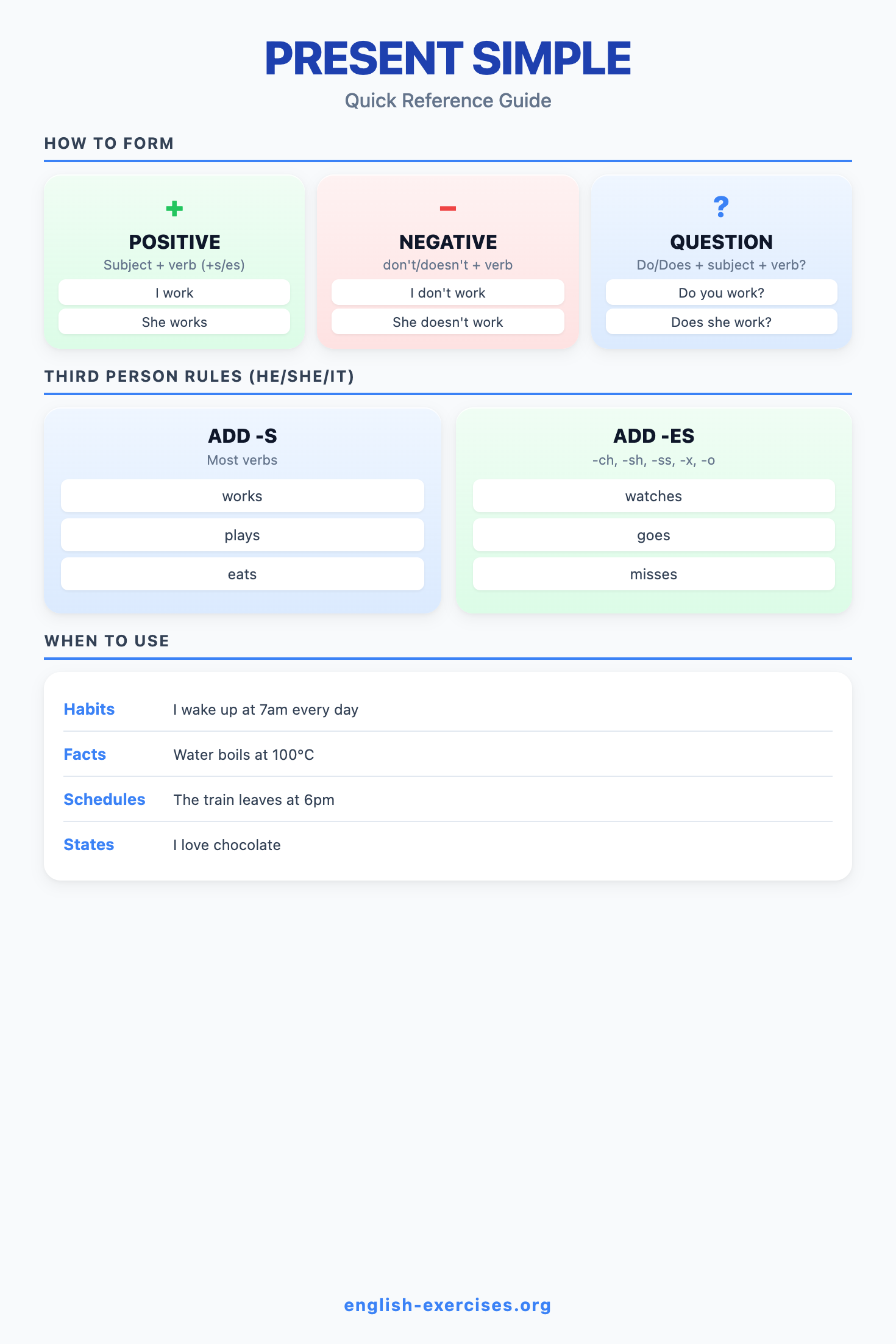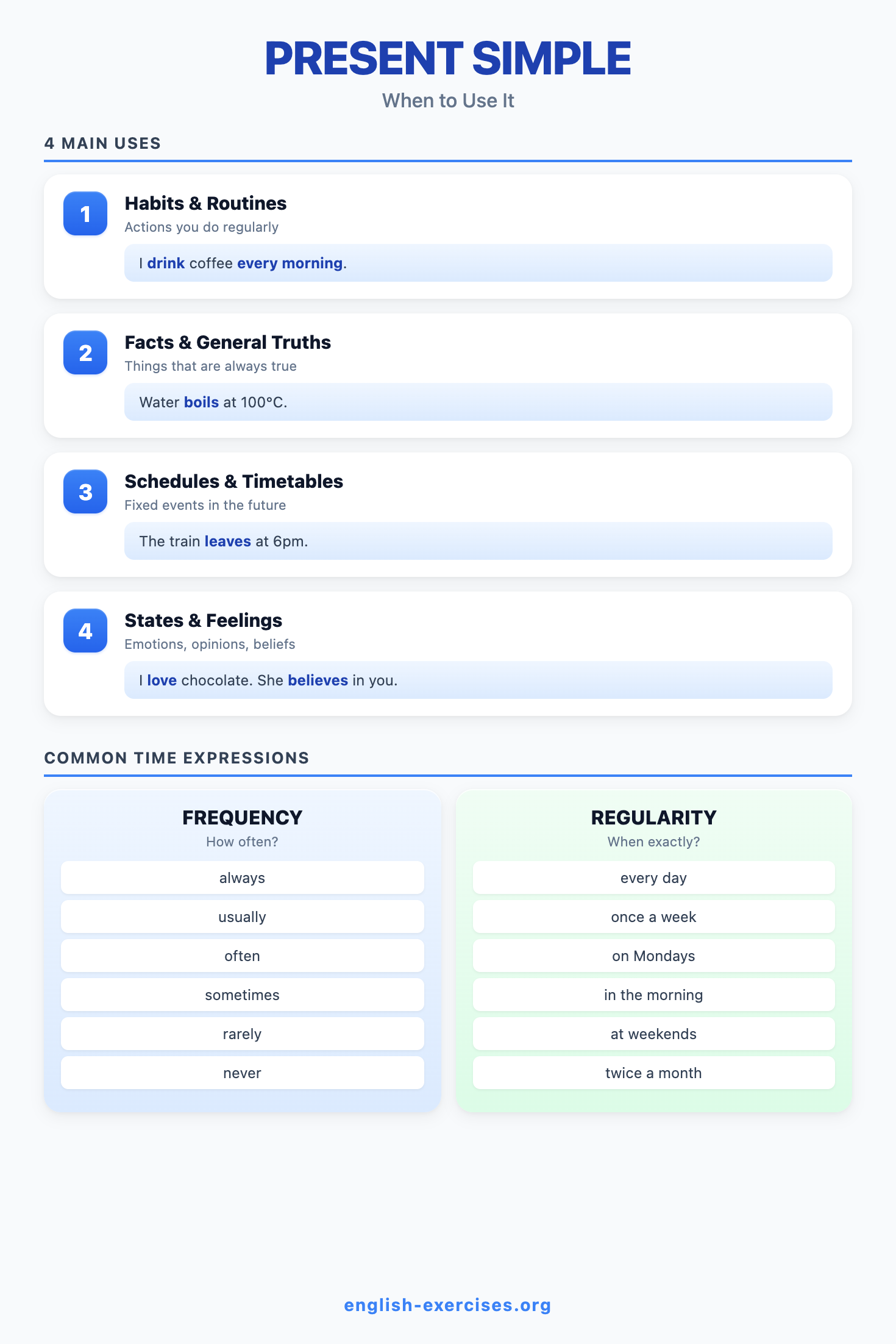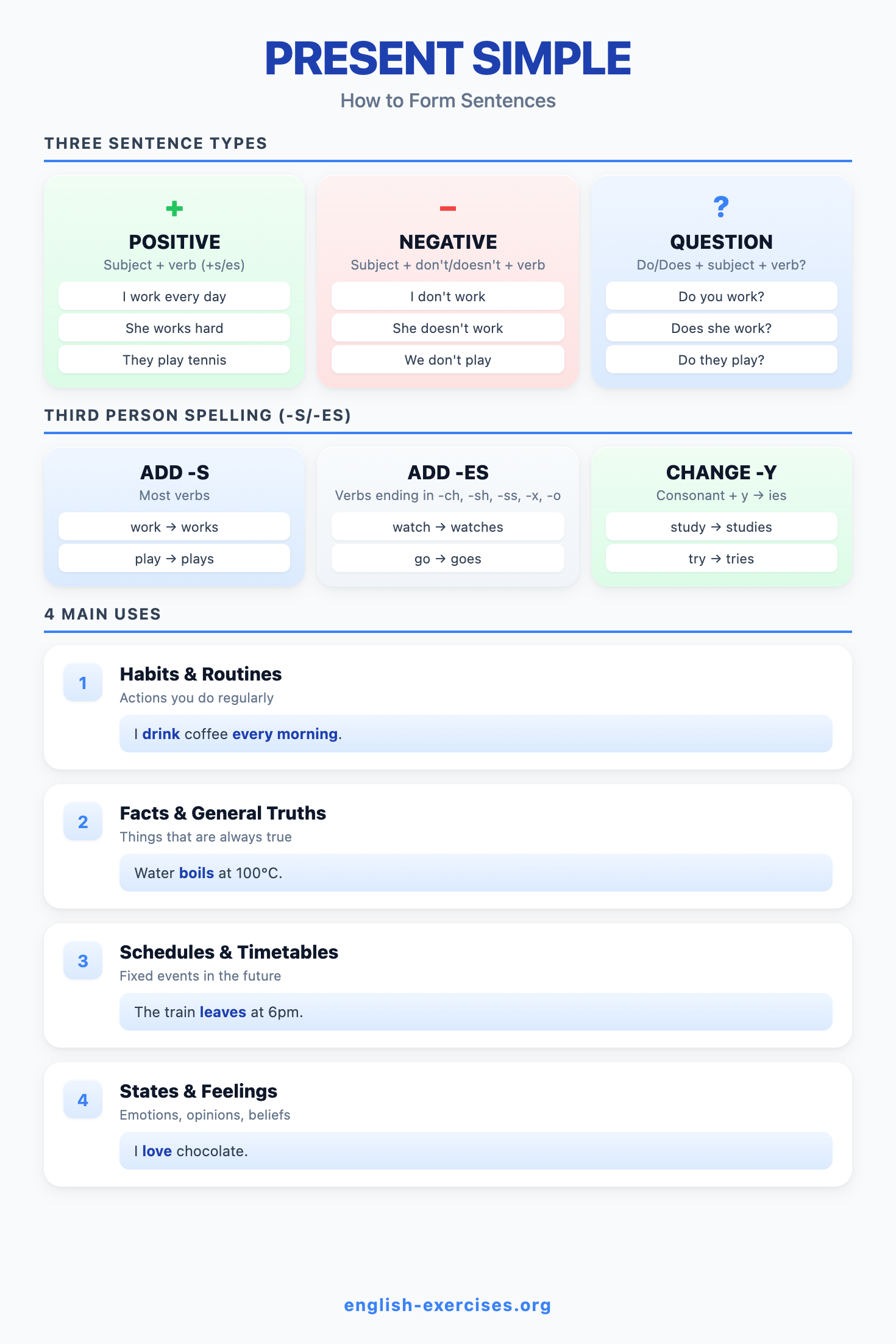What is the present simple tense in English?
The present simple tense describes habits, routines, facts, and permanent situations. Form it using the base verb, adding -s or -es for third person singular (he/she/it). For example: "I work" but "She works." According to corpus research by Krámský, present simple accounts for 57.51% of all verbs in spoken English.
✓ Positive
Subject + verb (+s/es)
"She works every day"
✗ Negative
Subject + don't/doesn't + verb
"She doesn't work"
? Question
Do/Does + subject + verb?
"Does she work?"







